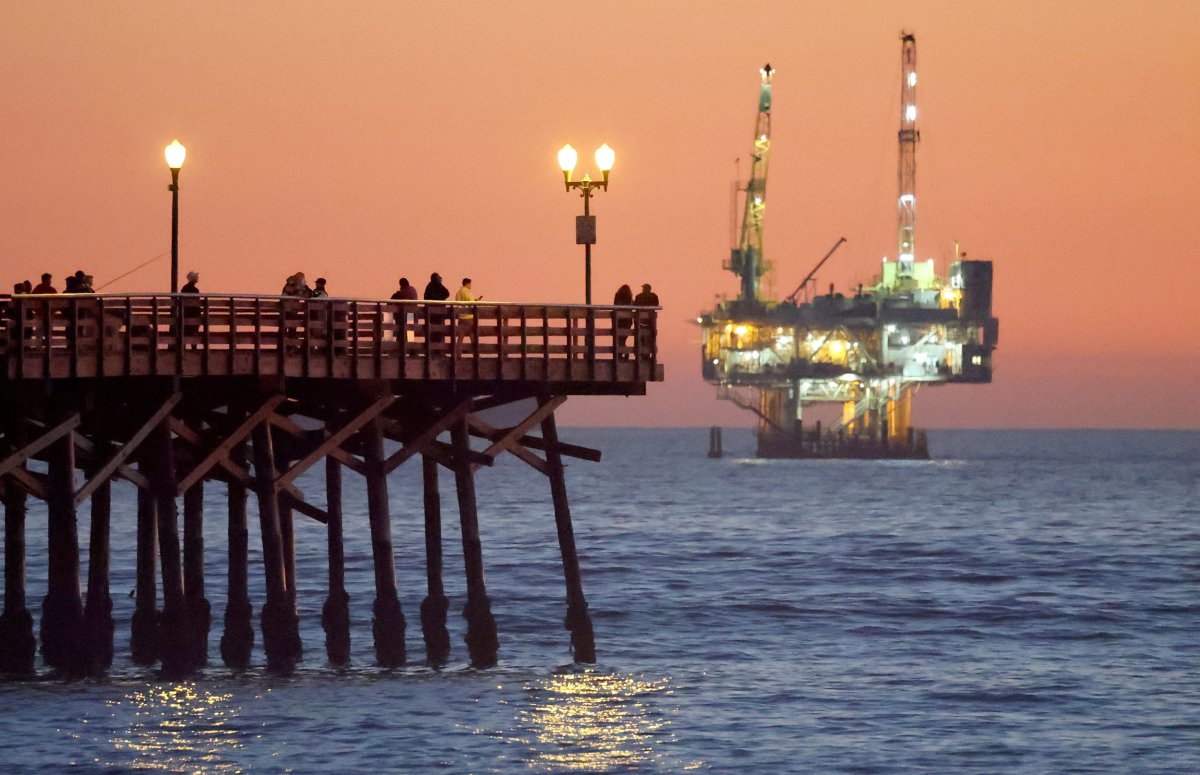In the closing weeks of his term in office, President Joe Biden on Monday permanently blocked new oil and gas offshore drilling in large swathes off the Atlantic, Pacific and Florida Gulf coasts. Biden removed more than 625 million acres of federal waters from future drilling permits and, despite incoming President-elect Donald Trump's pledge to "drill, baby, drill," Biden's order could prove difficult for Trump to unwind.
"Our perception is that it can't be reversed by executive action," ClearView Energy Partners Director of Research Kevin Book told Newsweek. "That is not the same thing as saying that it cannot be reversed, however."
Biden used the Outer Continental Shelf Lands Act, a 70-year-old law that lets presidents limit future drilling in federal waters. Presidents of both parties—including Trump during his first presidency—have used the law to temporarily withdraw offshore tracts where drilling was environmentally damaging or politically contentious.
When seeking reelection in 2020, Trump withdrew waters in parts of the south Atlantic coast for 10 years. But an earlier showdown over offshore drilling in other waters provided a test of presidential powers, Book explained.

President Barack Obama withdrew large stretches of waters from drilling, and in 2017, Trump issued an executive order to reverse Obama's action and restore future drilling permits, including in some Alaskan waters.
The U.S. District Court for Alaska found that Trump did not have authority to roll back the Obama action. Before an appeals court heard the case, Biden took office and reversed Trump's policy, restoring the protections.
Book's takeaway from that—and the view that many other environmental law and energy experts hold—is that it would take an act of Congress to undo Biden's latest action withdrawing federal waters from future drilling permits.
"Congress could pass a law reopening the withdrawn real estate, and Republicans might be able to do so on a party line basis," Book said. The politics of such a move, however, could be just as murky as the offshore waters in question.
Offshore Drilling Crosses Political Lines
In the hours after Biden's announcement, groups on both sides of the offshore drilling debate attempted to claim that their view reflected the American majority.
"American voters sent a clear message in support of domestic energy development," American Petroleum Institute President and CEO Mike Sommers said in a statement. "And yet the current administration is using its final days in office to cement a record of doing everything possible to restrict it."
In an email to Newsweek, Frank Maisano, senior principal at the law and lobbying firm Bracewell LLP, called Biden's action "completely tone deaf" to Americans' energy demands.
"Perhaps, it is why President Biden and Vice President Harris were tossed out of office by voters in November," Maisano said.
The environmental nonprofit Oceana, by contrast, applauded Biden for "listening to the voices from coastal communities" by blocking future drilling.
"Americans have been calling for these protections for decades," Oceana Campaign Director Joseph Gordon said in a statement. Oceana cited a survey the group released last year showing 64 percent of Americans support protecting coastal waters from offshore drilling.
Book said that the closer one gets to the potential drilling sites, the more complex the local politics can become, and the offshore issue often cuts across simple divisions between red and blue voters.
"Historically, those Florida-adjacent waters have been contentious," Book said. "Republicans protected them on several occasions."
Coastal tourism, real estate and fisheries provide the economic lifeblood of Florida's coast, and a group called the Florida Gulf Coast Business Coalition joined with similar business organizations from the Atlantic and Pacific coasts in a letter to the White House last July opposing new offshore drilling.
"Our members understand that dirty and dangerous offshore drilling directly threatens the marine ecosystems they rely on," the letter writers said.
No fisherman or coastal hotelier—whether Democrat or Republican—wants to suffer through something like the Deepwater Horizon spill that hit Louisiana's coast nearly 15 years ago. Biden cited that tragedy in his announcement Monday, calling it a "solemn reminder of the costs and risks of offshore drilling to the health and resilience of our coasts and fisheries."
Offshore drilling in Florida also has a curious national defense wrinkle. In a letter last summer to the White House, a Florida-based group called the Defense Support Initiatives Committee urged Biden to keep the eastern Gulf of Mexico free of oil and gas development that might interfere with Eglin Air Force Base, which uses thousands of miles of the Gulf for training.
"Common sense suggests that we should not be extracting and transporting highly flammable products alongside live fire, munitions testing, or missile shooting," the committee members said and pointed out that military spending in Florida has an annual economic impact that is greater than $96 billion.
Add all that up and the political calculus on offshore drilling gets tricky, Book warned.
"I can't begin to prejudge how a narrowly divided Congress like the one that just was installed will end up deciding," he said.
Little Impact at the Pump
Biden's offshore ban is part of a larger effort throughout his presidency to limit some of the federal lands, both onshore and off, that are used for oil and gas development and to instead shift the U.S. to cleaner energy sources and EV manufacturing.
Even in the waning weeks of his term, Biden has stepped up the clean-energy and climate action, finalizing major loans for EV battery makers and setting an ambitious new national goal for greenhouse gas reductions.
At the same time, U.S. oil and gas development has soared under Biden's leadership time, and the country is producing and exporting more petroleum than any country, ever, according to the Energy Information Administration.
Biden's announcement Monday also reflects that duality. While the order proscribes new drilling along most of both the Atlantic and Pacific coasts, the order does not affect active drilling permits and carves out the most important areas of offshore production such as the western Gulf of Mexico near Texas and Louisiana.
Those exemptions, coupled with the long lag in time between permitting and production for offshore rigs, means that there will be little short-term impact at the gas pump, Book and Maisano agreed.
"I don't think it will have much impact on prices or production," Maisano said. "It is largely symbolic."




















 English (US) ·
English (US) ·